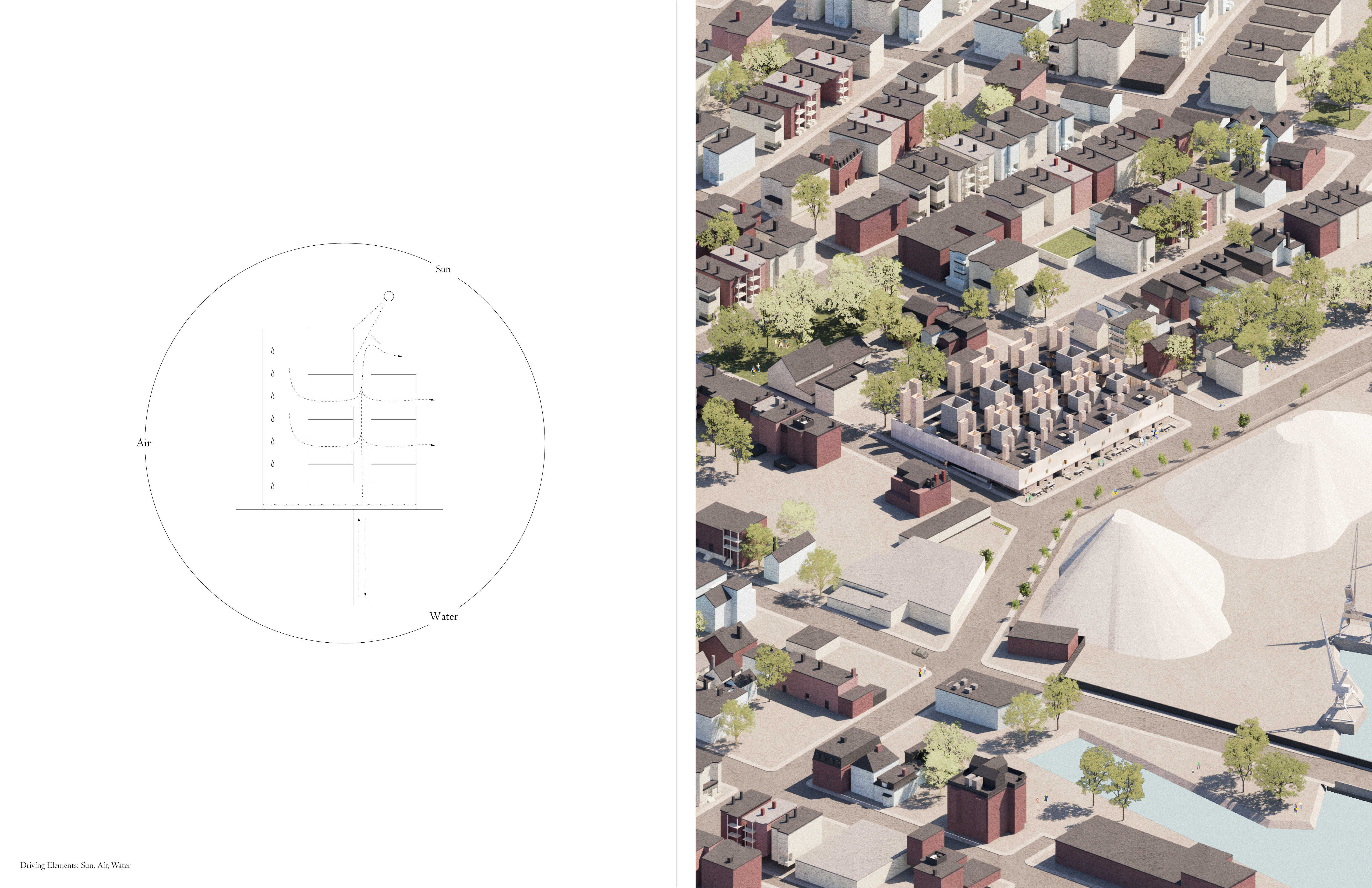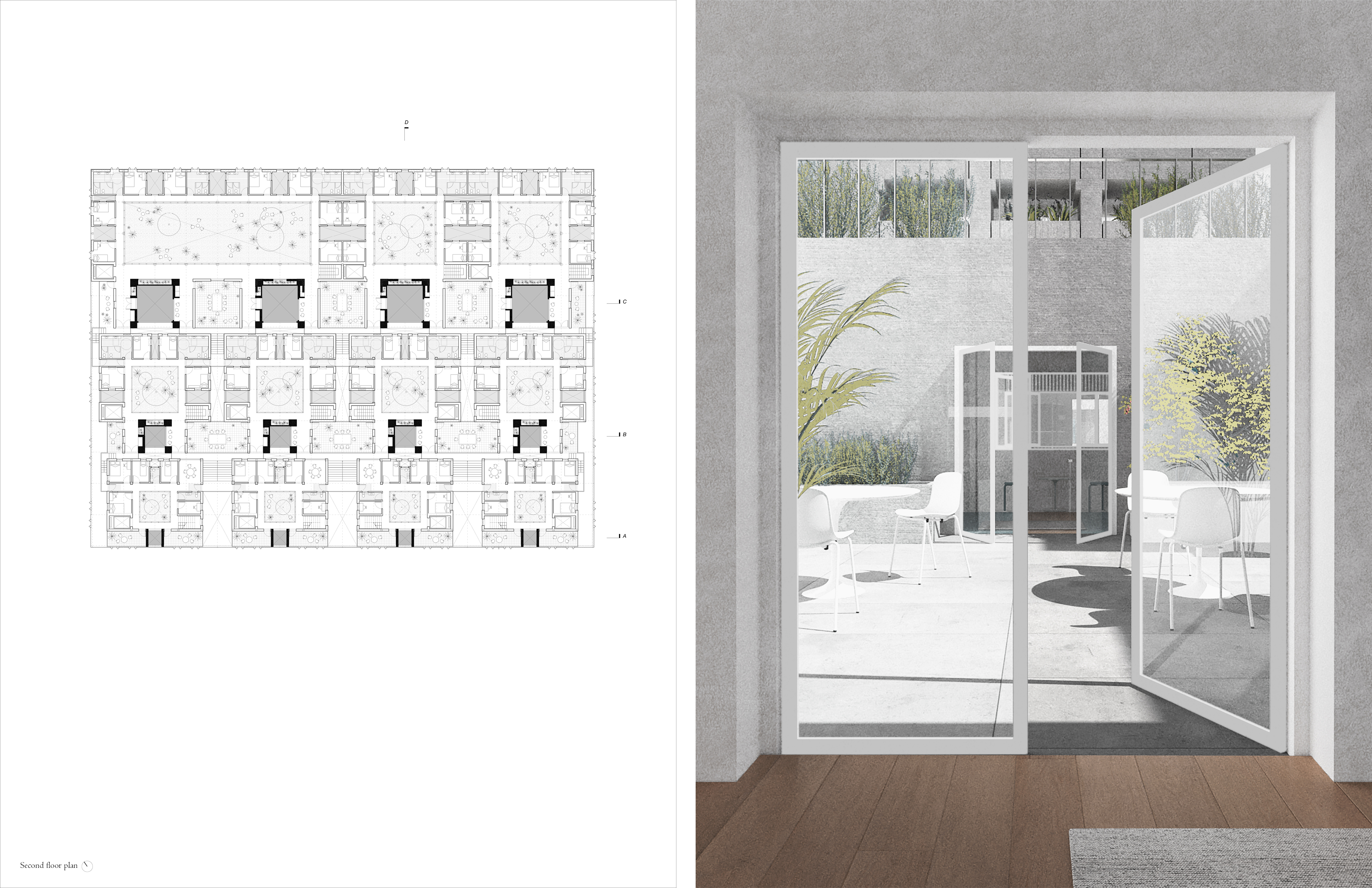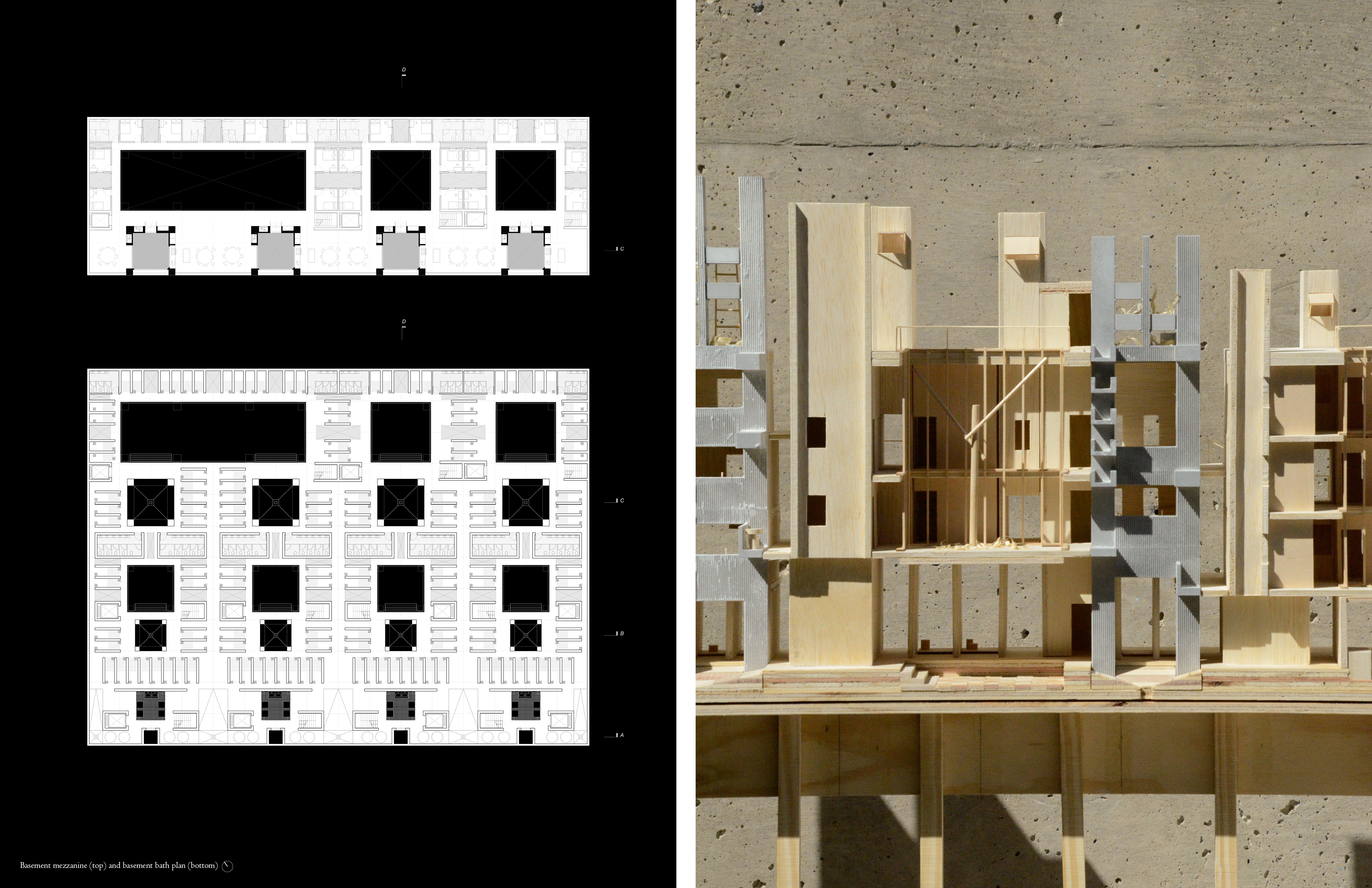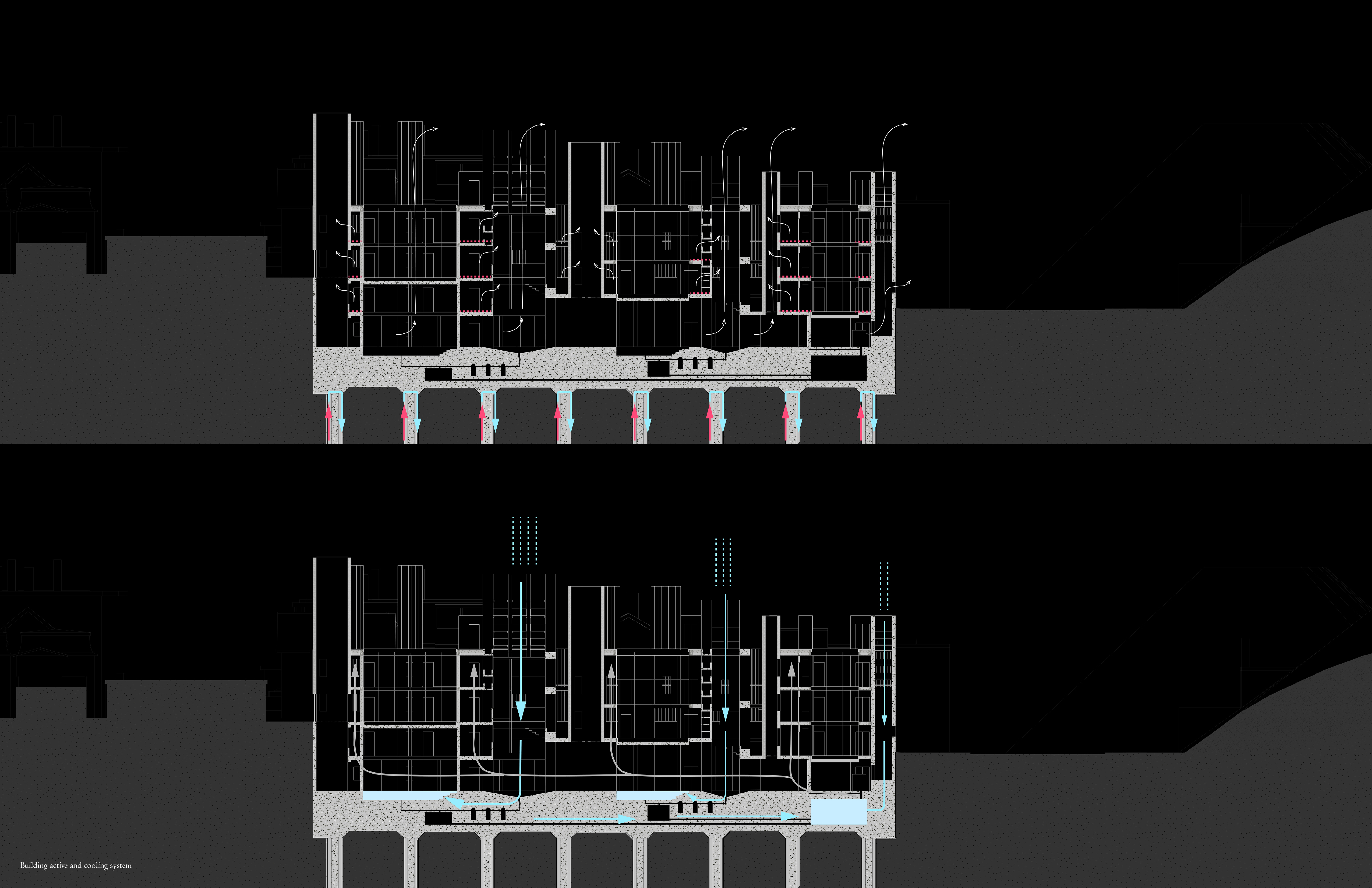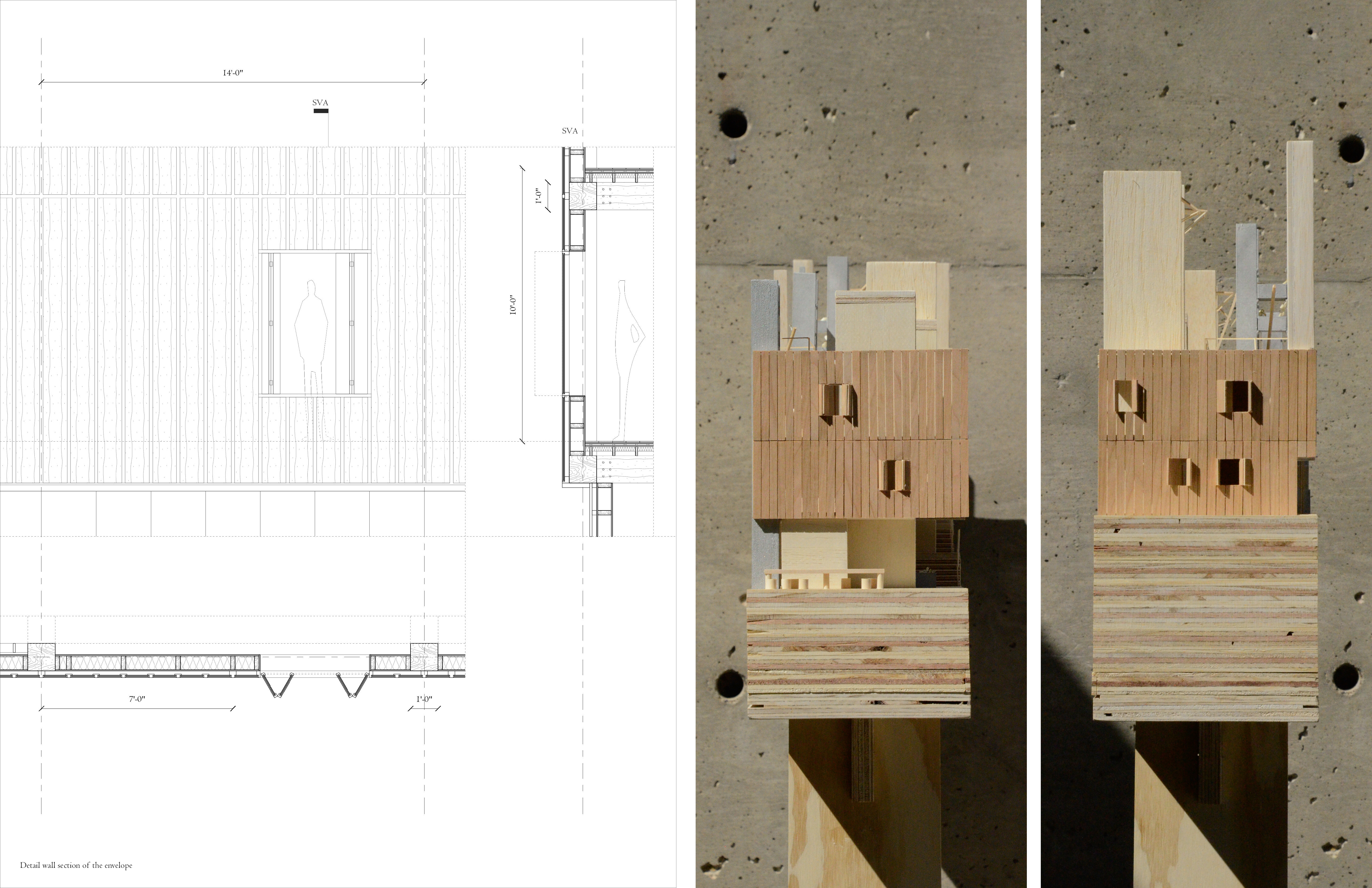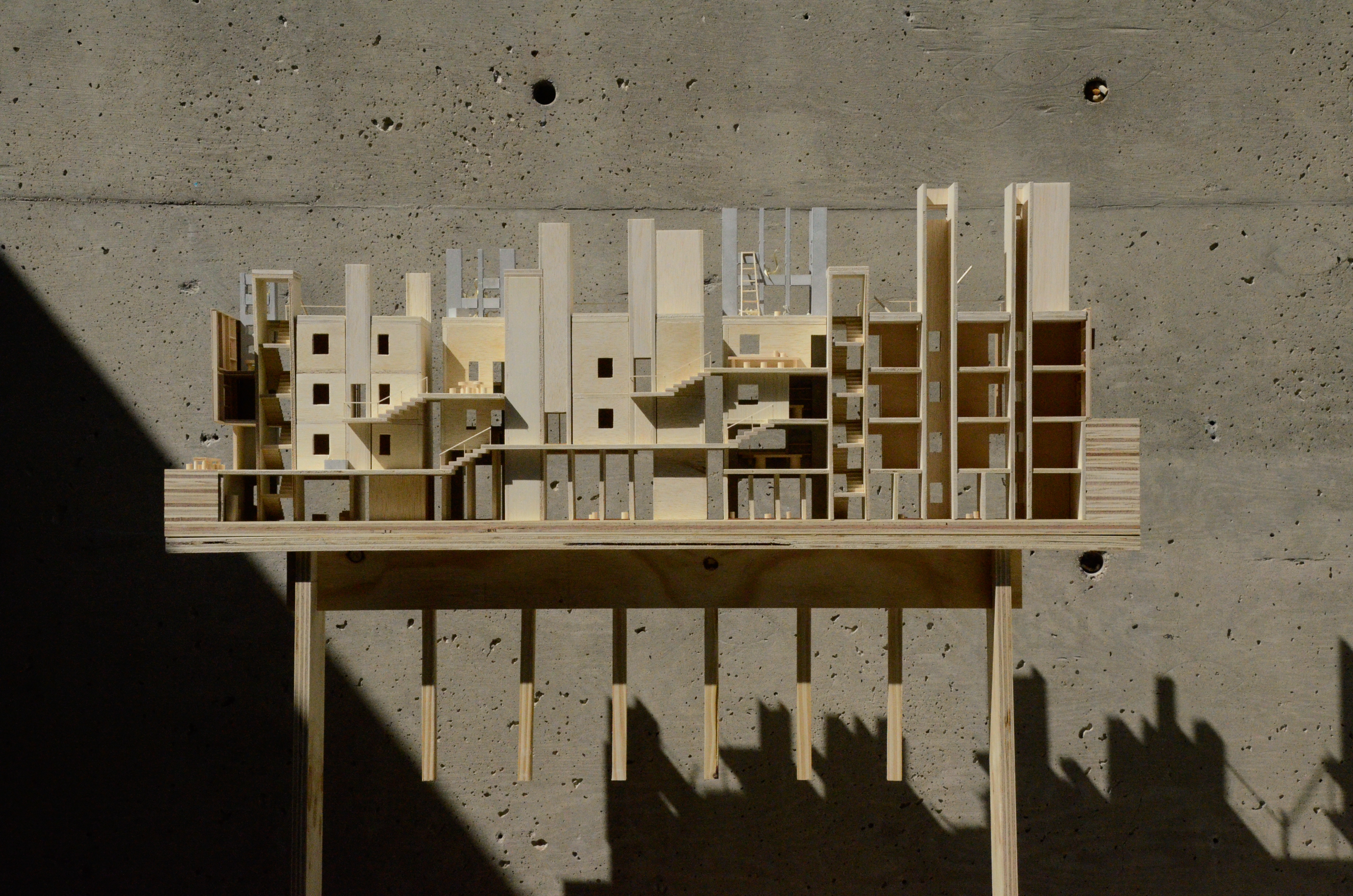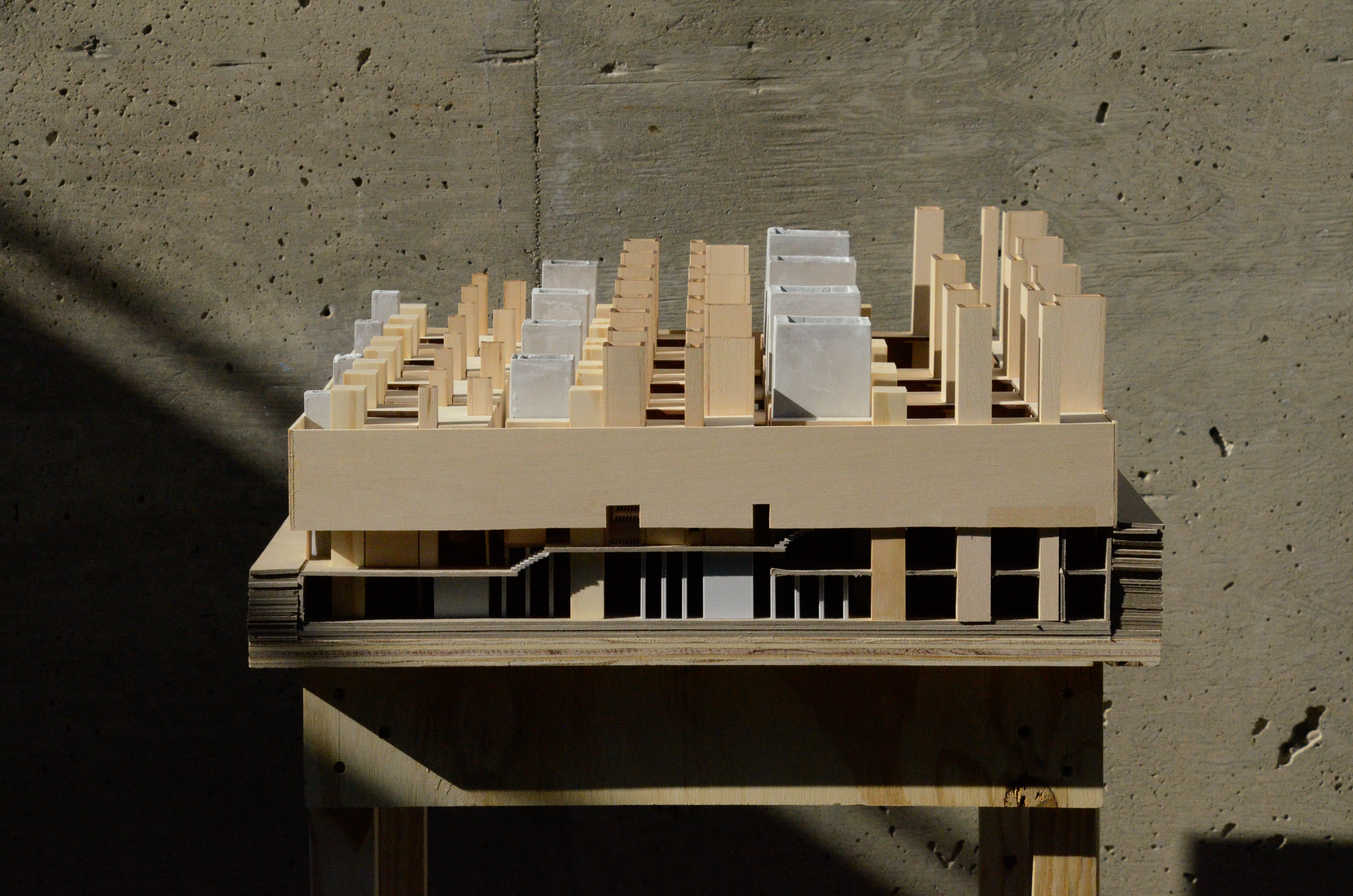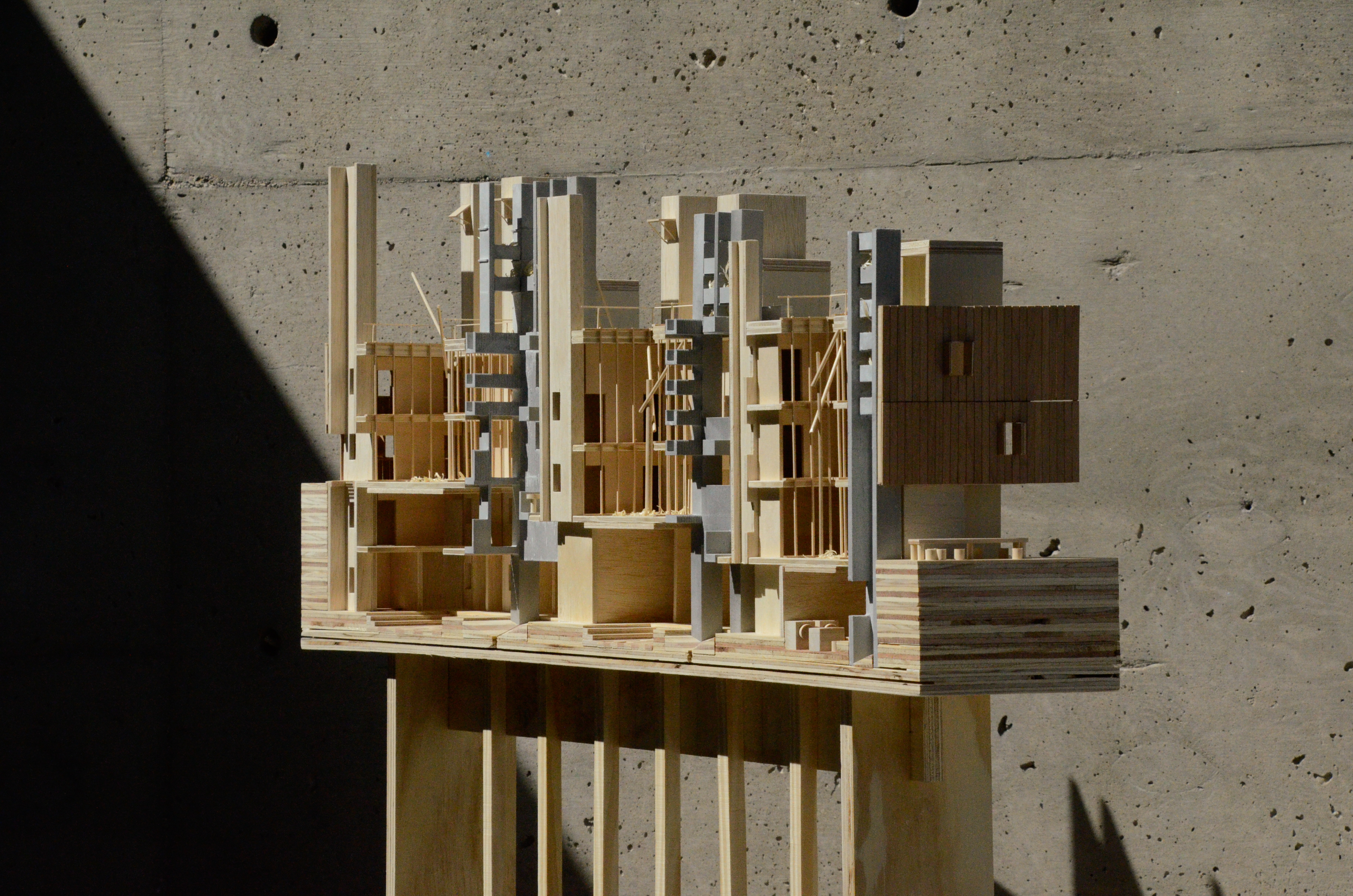
Chelsea, Massachusetts, is home to remnants of an industrial past. Having endured the Great Fire of 1908 and the fire of 1973—each destroying large parts of the city—housing stability and climate security are not guaranteed. Today, unique architectural elements like smoke chimneys, tank farms, and factories decorate Chelsea’s landscape, but they have largely become non-functional shells. Left unused and vacant, these remnants raise a broader question that informs our housing proposal: how do we adapt to future climate changes while recognizing existing architectural context and needs?
This proposal addresses the urgency of the housing and climate crises through collective housing designed for both permanent and transient residents. Whereas the surrounding triple-decker homes follow a conventional model to accommodate the single family, this project offers the flexibility to house Chelsea’s varying demographics—from single occupants to non-nuclear family types. Each bedroom connects to a solar chimney, bringing in natural light and ventilating through the stack effect. The solar chimneys and vertical gardens rise above the structure, leaving room for future housing adaptation. Shared amenities, including the kitchen and dining areas, wrap around the vertical gardens, each forming a hearth.
In the late 1860s, Boston introduced public baths to promote cleanliness, good health, and “good citizenship.” Echoing this history, cleansing in our project occurs at three scales: the skin, the body, and the building. In the basement “wet level,” residents have access to laundry facilities, showers, baths, and pools. Rainwater collected by the building is filtered for the pools or stored for utilities and gardening. Cleansing becomes a ritual practiced both individually and communally. The project aims to serve as a hearth for collective housing in Chelsea— now and into the future.
Institution: Harvard Graduate School of Design
Course: Core IV -RELATE
Project: Future Adaptations in Housing
Instructor: Elizabeth Wittaker
Partner: Emily Li
Year: 2025
